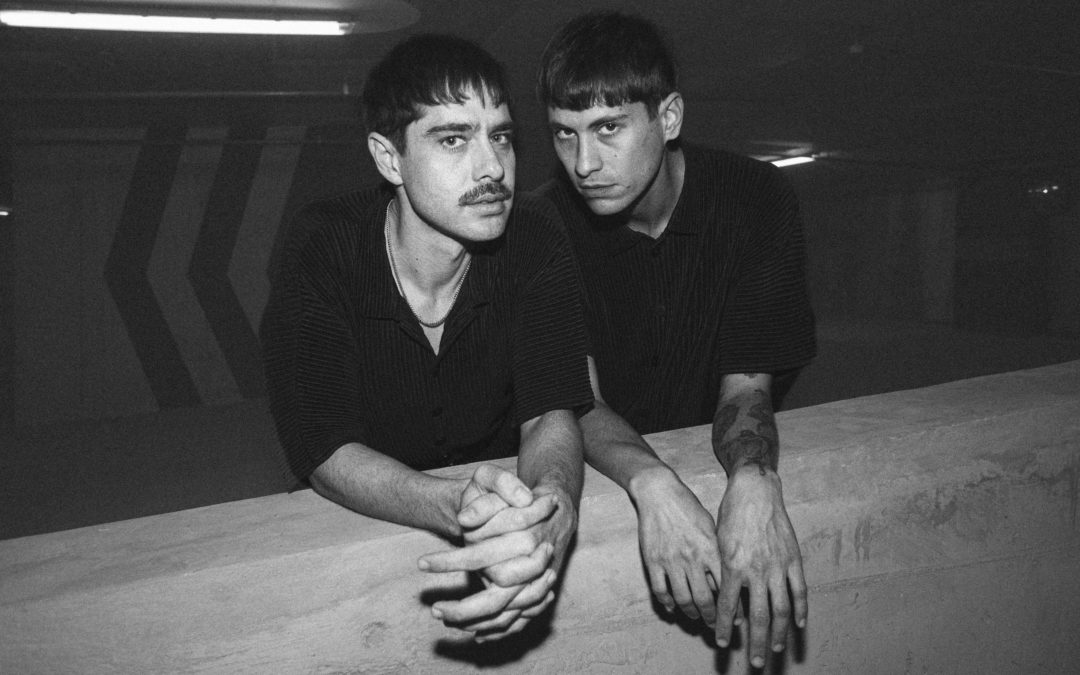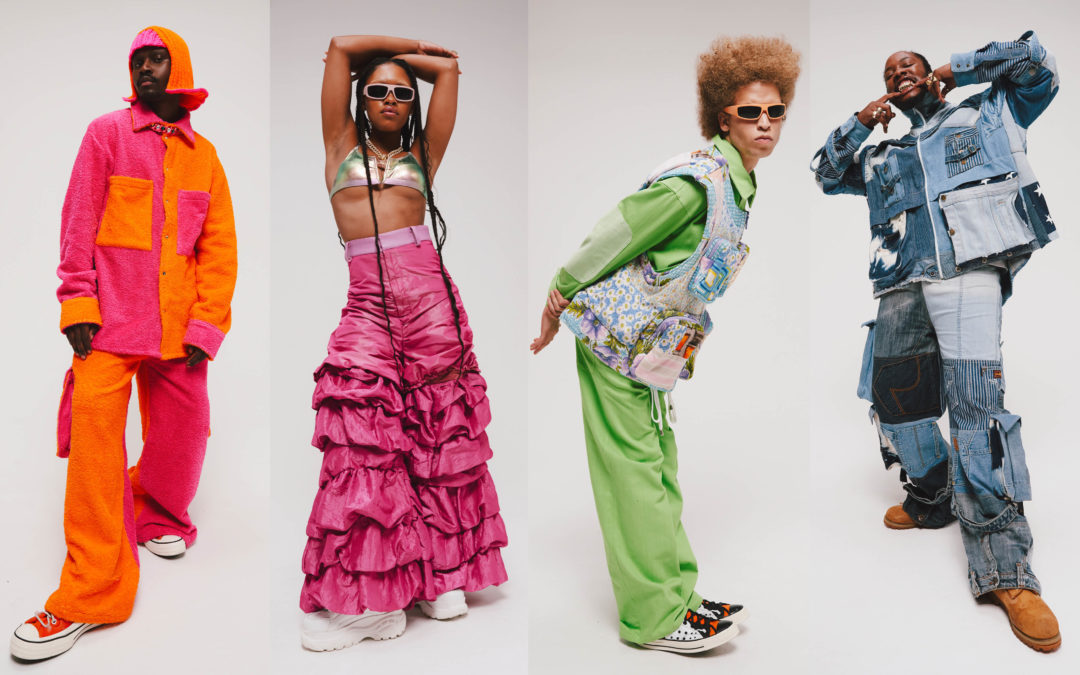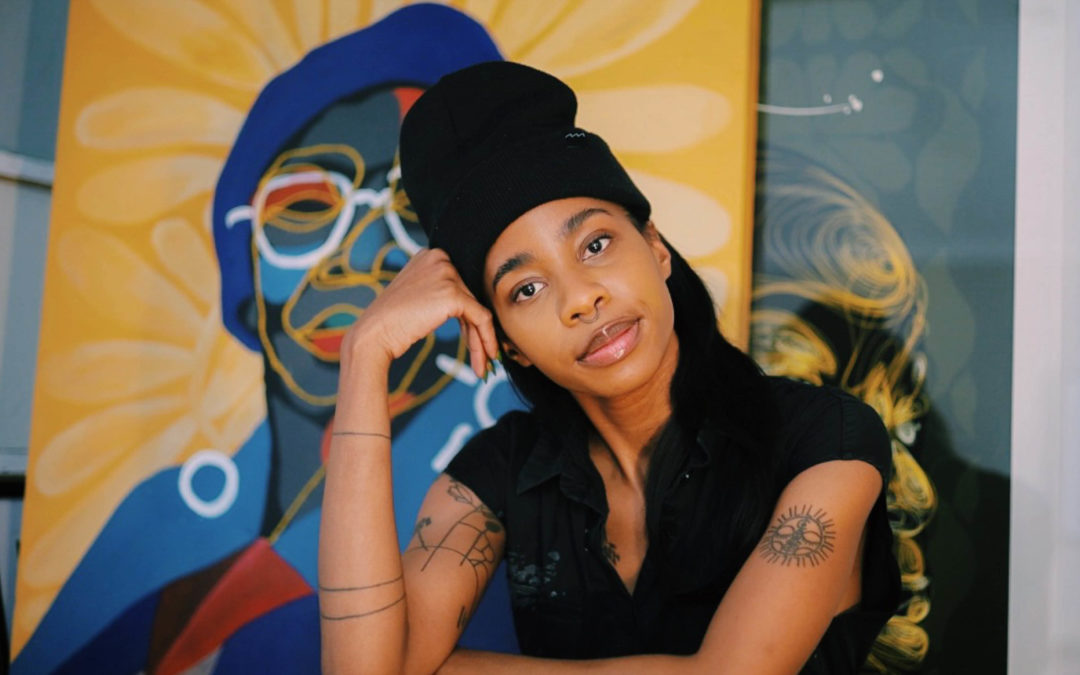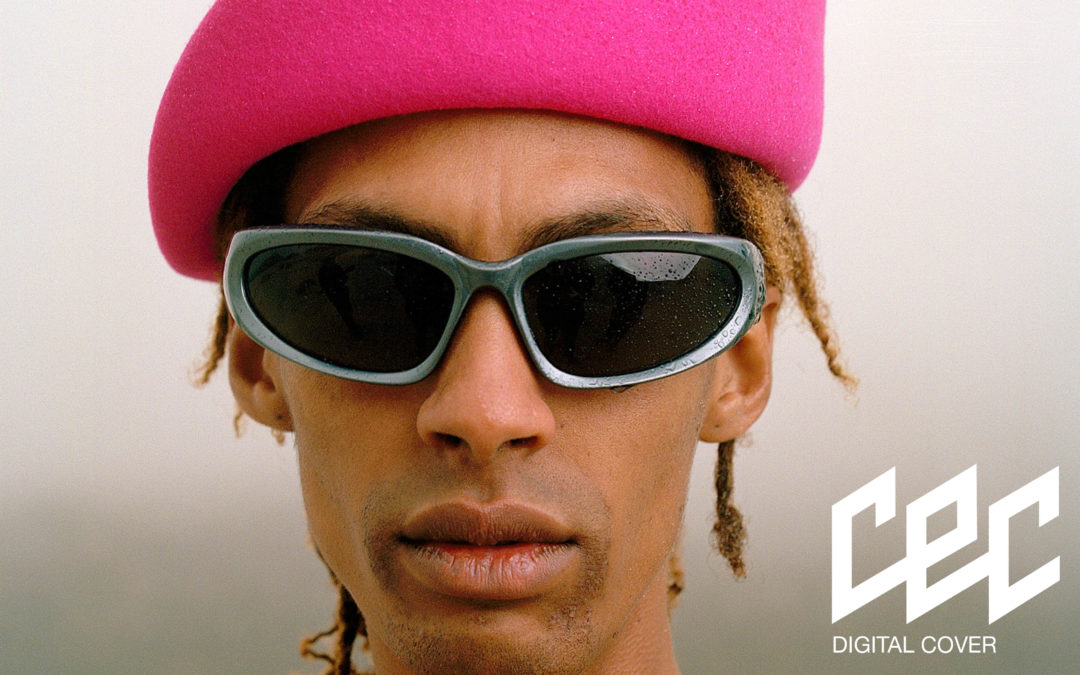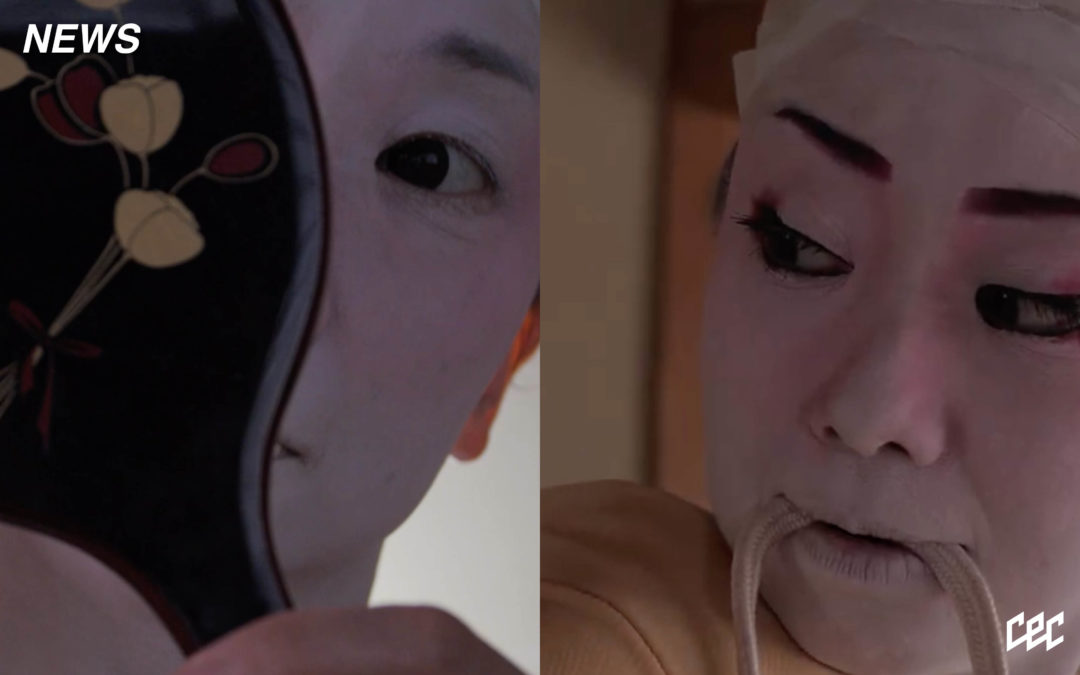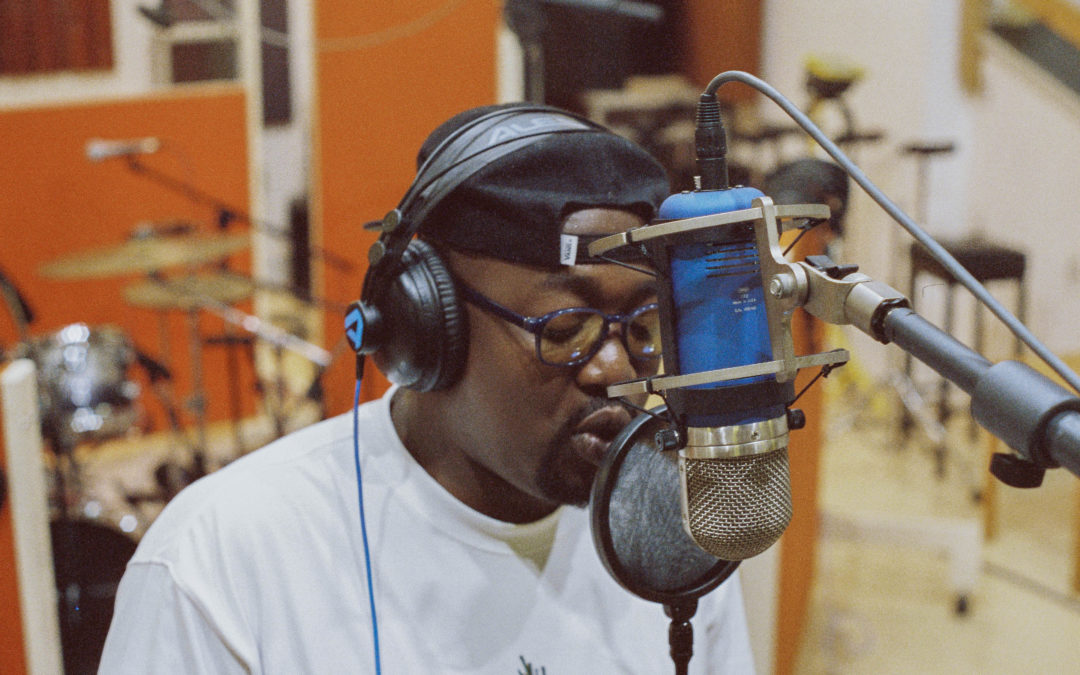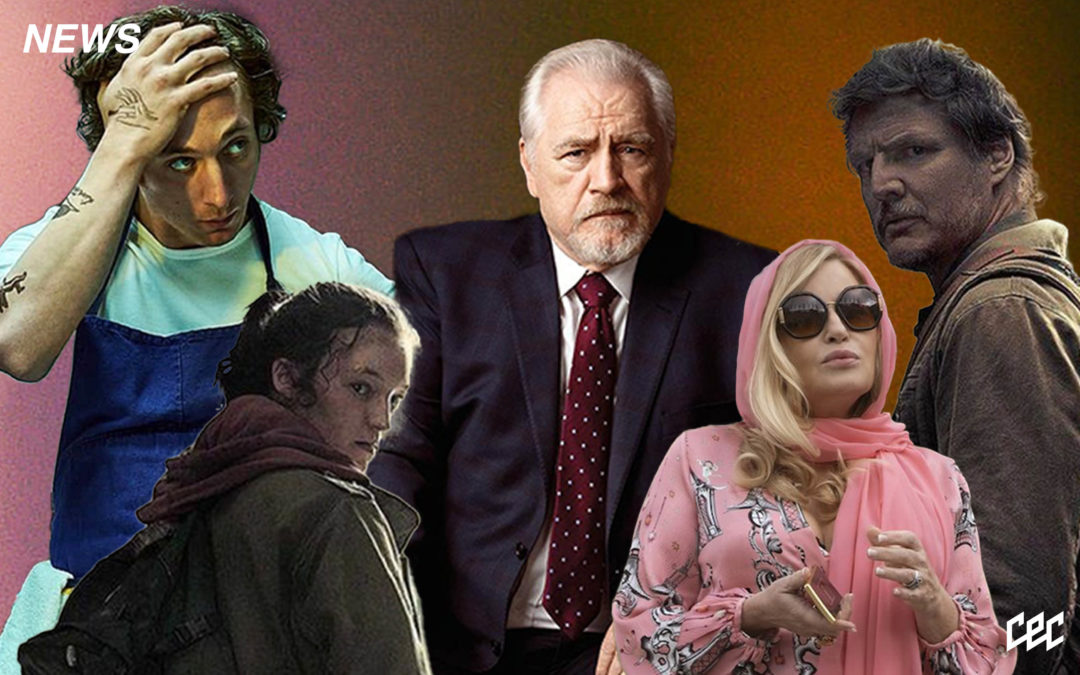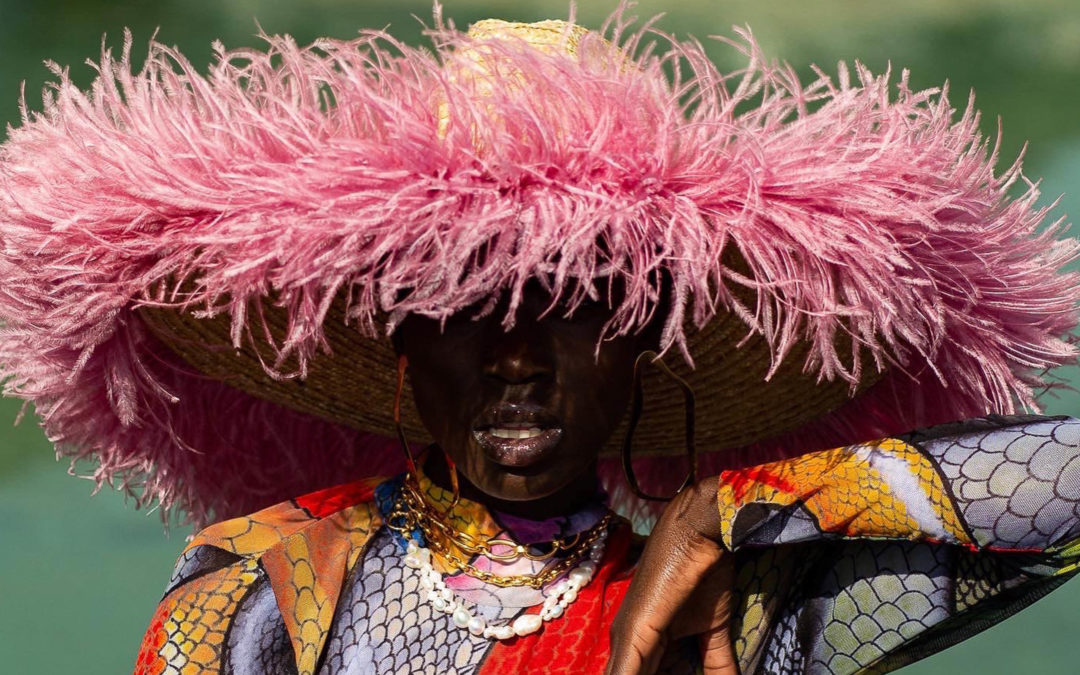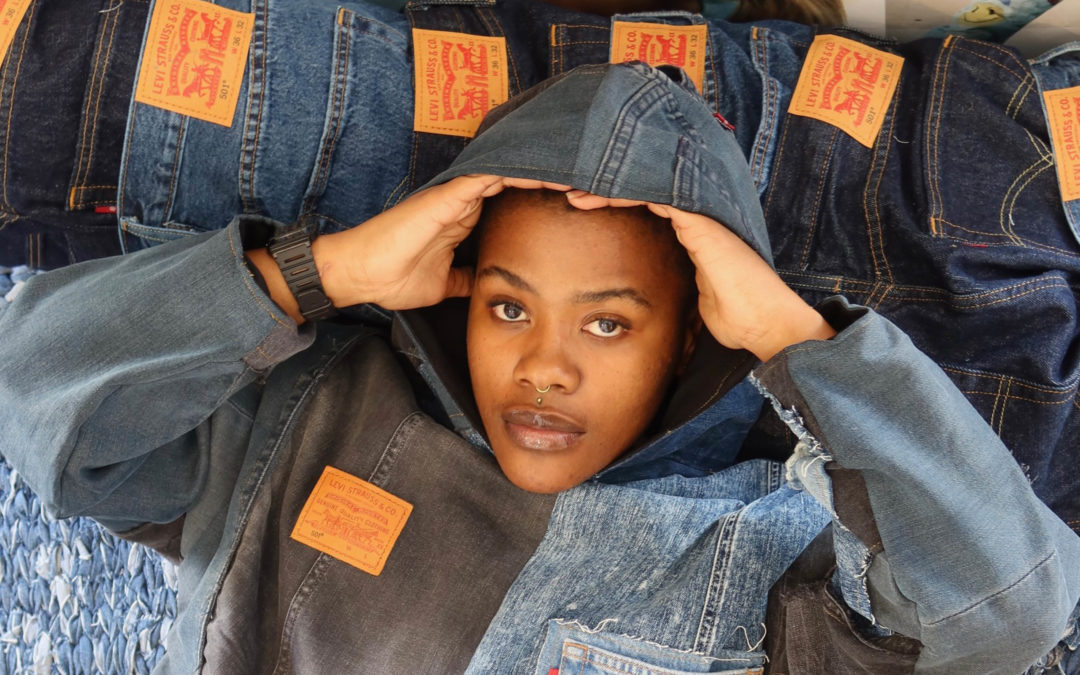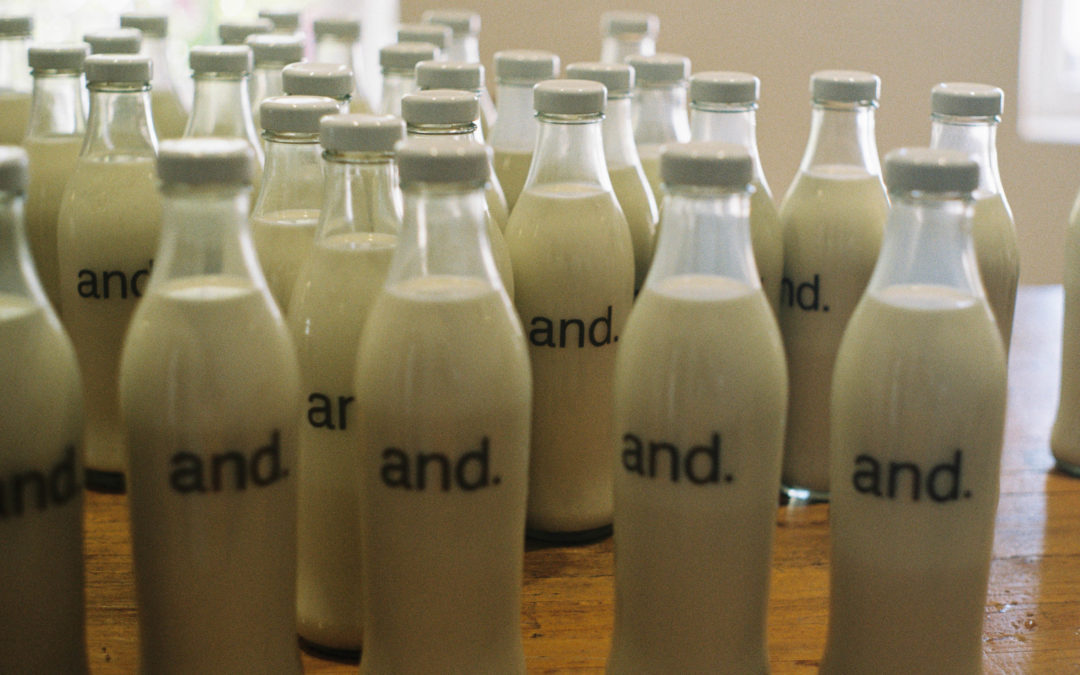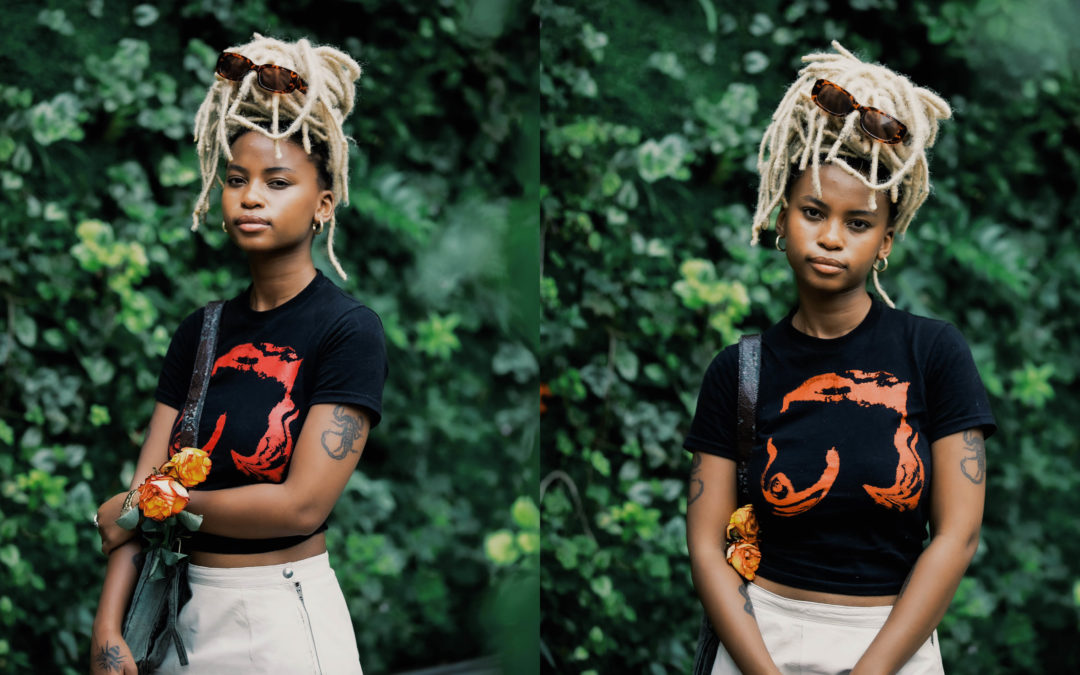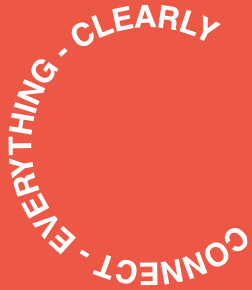The term ‘multi-hyphenate’ can feel like a nondescript buzz word, thrown around to evoke a layer of complexity to a person’s ability. Yet, when searching for an adjective rich or functional enough to introduce Alexander Alien, suddenly the term took shape in its rightful place – Alexander Alien, formerly known as Gourmet Spaghetti Boy, is a multi-hyphenate in the truest sense of the word. As an art director and musician specialising in sonic and visual languaging, Alex’s work fosters an emphasis on how the auditory art informs the creation and visibility of world-building, and as one of the foremost alumni of the Cape Town to Berlin pathway, he has carved out beautiful successes working across varying industries, all the while introducing himself as an artist unconstrained by genre or technique. In his first iteration as Gourmet (Spaghetti Boy), the wave forms lent by a mastery over synths run as threads across his discography, and since the early 2010s, a Gourmet video proved to be one of the preeminent examples of experimental-videography-meets-performance-art, forming the underground, electrico-indie scene that has come to define independent music in Cape Town and Berlin. Now, in the last few months, a change to his moniker (something he had felt he needed to do for a long time) was plucked from a dream he had, and signifies a new chapter for the artist.
“I think the starting point for me was 1991, a label that I ran with two other people, for about 3 or 4 years. We didn’t have any money, and we didn’t really know what we were doing, but we had huge ambition. We couldn’t afford lights to make films, so we were making lights out of cut-up property signs, and going to Eagle Lighting to figure out how we could pay the least amount of money for the highest wattage. I had started studying advertising, but I ended up dropping out because I was super unwell at the time, and so I actually stopped both my studies and the record label because I was so unwell, just before I went to Berlin for the first time. I feel like I learnt everything doing 1991 – that was my university.” Alex explains, expanding on how his sonic and visual disciplines came to form, “there was so much emphasis at the time on creating these worlds in which to place one’s music. I think we sometimes forget that the last two decades have really been the testing ground for the internet, and so suddenly musicians and artists had all these mediums at their disposal. I was in this liminal space with my illness, and at that point was really encouraged by Thor Rixon and Alice Phoebe Lou to come to Berlin, and when that chapter of my life started, I started doing a lot more art direction and design alongside music. I arrived in Berlin with, like, a month of rent, so I had to try and make it work – and I think I cold-emailed like 200 clubs, introducing myself and asking if I could make posters for them. I got one reply, but really that’s sometimes all you need.”
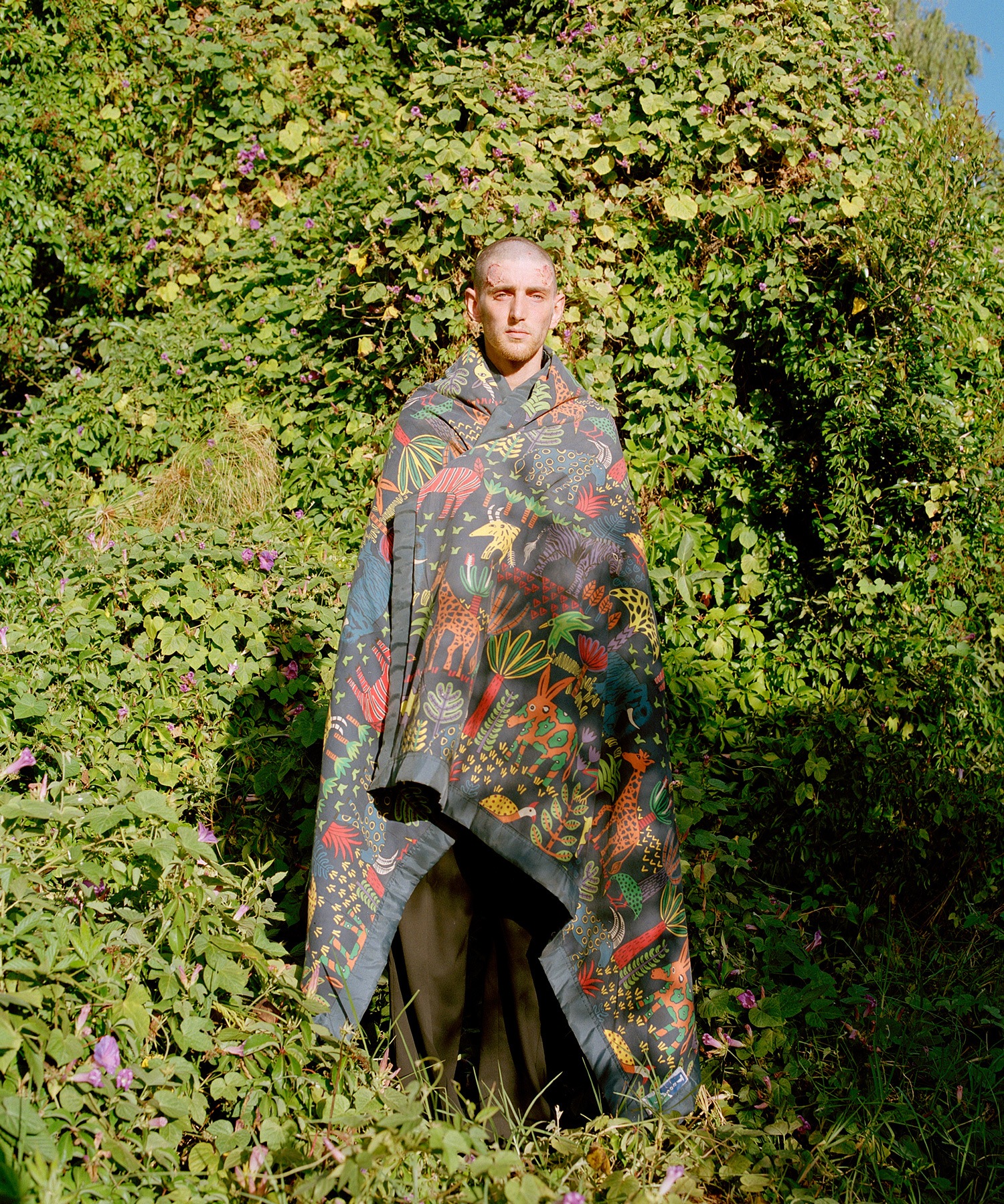
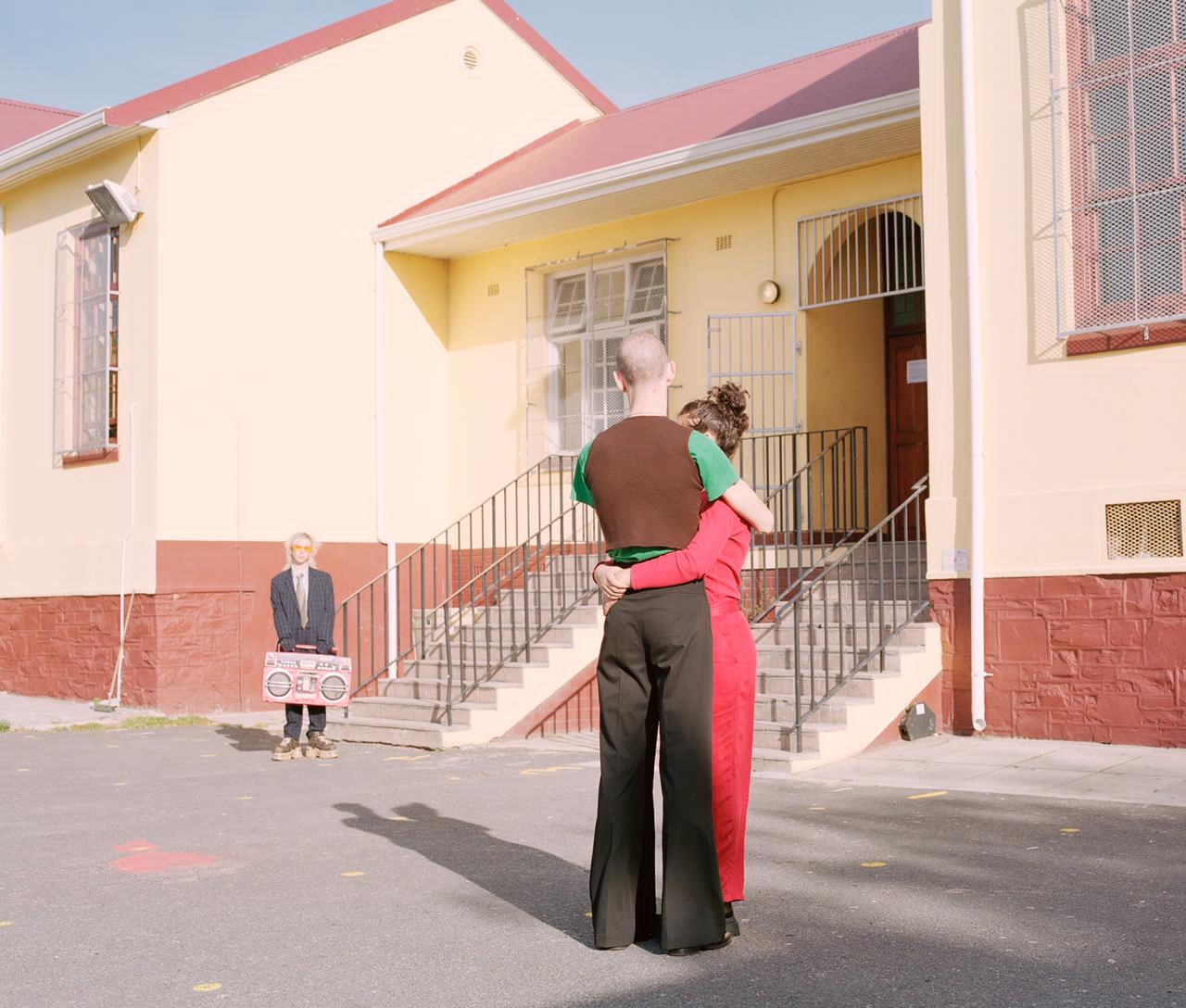
“Before, if someone asked what I do, I would say well, I design album covers so I guess I’m a designer, but I also do a bit of animation, but I really want to be making more music and music videos – it was kind of a bit all over the place. I’ve been doing all those things for like six or seven years, and now I feel like I’ve managed to build all these obsessions and skills into a unified vision. Now, I would call myself a freelance creative director.” As I see or experience Alexander Alien, it is evident that his visual and musical work are totally inclusive and interdependent on one another. Alex’s style is strongly dosed with an identity, and while the core emanates from his personal vision as an artist – he has offered his skill sets to a variety of incredible clients. I think of the music he lent to Fendi’s Baguette Bag commercial featuring Amanda Seyfriend and Emma Roberts, or the myriad of posters he has designed that need no definition; with a client list that includes Lenny Kravitz, Alexander McQueen, Carhartt and so on – Alex’s work is distinct, precise and saturated in the kind of colours and complexity that I link back to our days running riot in Kirstenbosch Gardens, bodies full of fungi and eyes widened by the dancing light across flowers and foliage.
Recently, Alexander shed his ‘Gourmet Spaghetti Boy’ skin, finding himself disconnected to his former moniker. For any artist, this is a hard task – there is a sense of exposure that comes with transmuting a former iteration of self. I ask Alex about the shift, and how it has felt, to which he says “I had the name for a very long time, and for a long time it didn’t feel quite right, but I didn’t know why. At the time I was trying to put things under different names, but I’m very bad at being consistent with things like Instagram – and I was like, if I can’t even do one account, why am I trying to do multiple? I had this dream one night, and the name ‘Alexander Alien’ came into my head. The problem had been that I was doing brand identities for like, venture capital companies, but they’re speaking to me under the Gourmet Spaghetti Boy name – and it was hilarious, but at the same time, I want to be able put out music, but also booked to do a brand, or buy a painting, but to have it under all one banner. I feel like ‘Alexander Alien’ fits well, because it’s my first name, but it has that Hollywood-sounding name like ‘Rob Zombie’ – that sense of obscurity in it, too.” The name changing is also fitting for a new era in Alex’s creative individuation; and it releases him from any confines previously projected onto Gourmet. Now, dance-music is Alex’s focus; and under Alexander Alien, there is room to build worlds within worlds. This year of 2023 experienced by those of us born in 1993, 1995 and 1996, is astrologically marked as our Saturn return – in a zodiacal sense, it is an initiation from our childhood, teenage years and early twenties, into a bigger space of maturity, wisdom and expression. I can’t think of a more apt moment for an alien to jump planets, and explore new dimensions of his internal cosmos. During this evolution, Alex describes his latest work and the feeling of the name change, “I’ve got this 14 song album called Volcano Brain and a 7 minute film with long time collaborator, Kent Andreasen, that we made to go with it. I was actually saying to someone the other day, though, that when I was younger and I felt like this – heartache and pain – I was chasing myself, and grabbing at ropes. Now, though, I can recognise that I have built this foundation and resilience as an artist, and that things don’t have to fall apart. I feel like I’ve spent the last six or seven years sharpening tools, and I’ve had such a good time sharpening tools, and making a life out of doing that. Now, I have this really sick toolbox, but I haven’t really been building anything, and now I can get going on that – that’s what Alexander Alien is, it’s the thing I am going to focus my tools on building.”
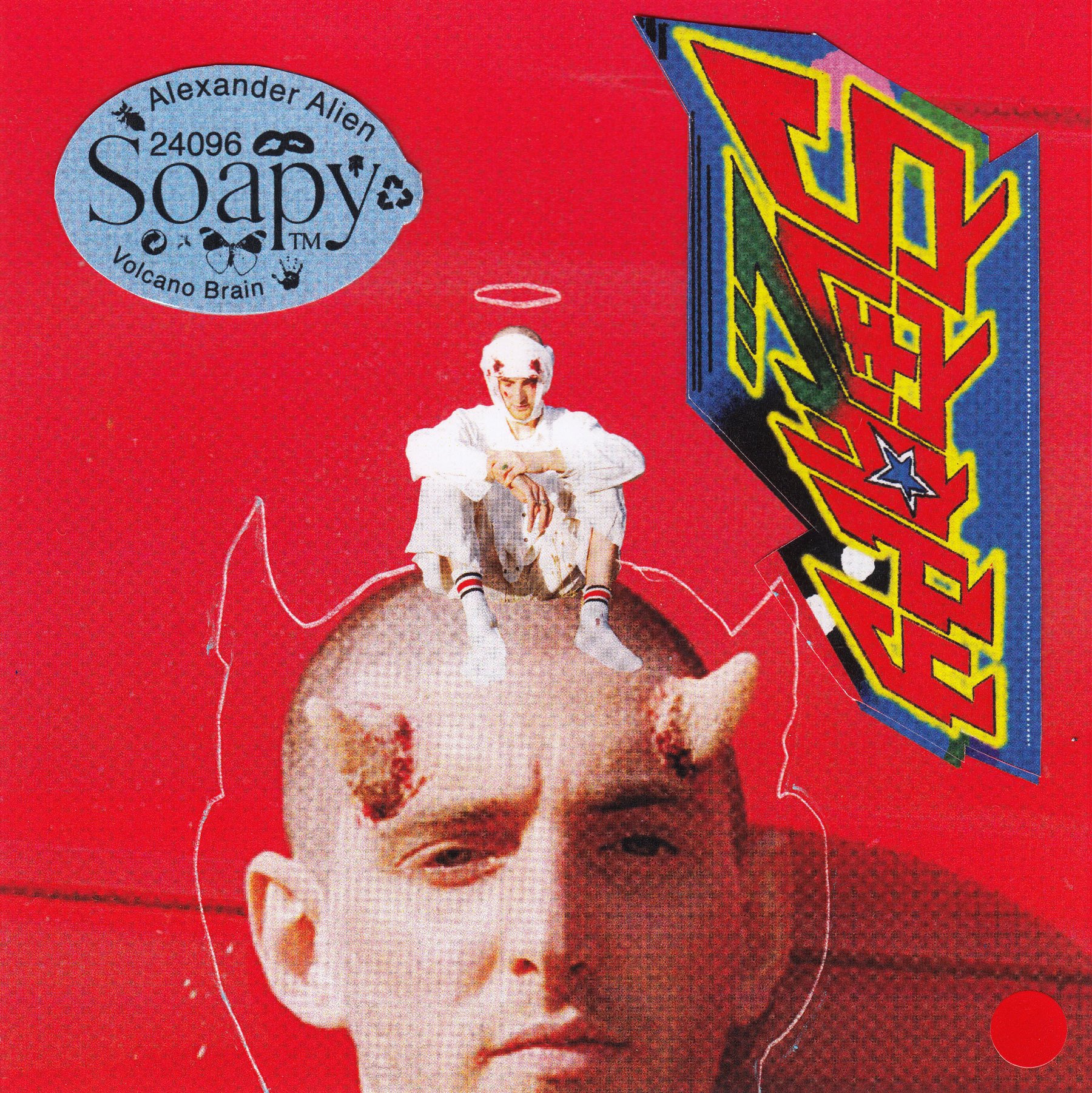
Artwork for Alexander’s upcoming single ‘Soapy’.
We are in the midst of digital and analogue hybridization insofar as creative manifestation is concerned. While artists like Alexander seem to be experienced in cyberspace, the potential for exhibitions, zines and paintings only seek to ground the experimental ability of a world like Alexander Alien’s. On this digital/physical fusion for artists in the 21st century, Alex says “I think it’s quite confusing being a person, but specifically confusing being an artist because everything before the 21st century – it was about focusing on one thing. I think we are going into a world where it is non-negotiable to have a handle on various mediums. I mean, if you can make your album covers, and make your videos, and do your own website – and mix and master your music – you can save so much money, but more interestingly you can have a total command of your own body of work, and then you can apply those skills for others; so I think the idea of being an independent or DIY artist becomes so much deeper and more useful in that way. At the same time, you need so much discipline to learn to do more than one thing with a certain level of proficiency – and these possibilities are contrasted by the fact that concentration is really syphoned by apps, and the way we receive and process information and creativity online. When we did 1991, our biggest focus was trying to create a tangible reality in a digital space – so a lot of our work was translating physical objects online, like album covers with stamps and so on. Now, the kind of scanning, or creating textures that you can do are incredible. You know, I think today we have to treat our art like actual jobs – no matter how weird or strange it may be. There is no road map, but there is a way to be successful.” Something Alex points out, is that the promise of cyberspace has come with its perils; the idea, for example, that a changing algorithm on Instagram could be the difference between a creative being seen, or having their work requested – this governance by technology is contentious, and a continual conversation among creatives, artists and writers. The antidote, though, Alex assesses as “relationships are the thing that are really what it’s about, so I think if we can utilise these things for what they are; tools of communication; but that we maintain the essence of creating relationships, then I think we will figure out these contrasts.” Alex is about to head back to Berlin, a place he finds deeply invigorating as an artist. With a new era well underway, we are excited to see Alexander Alien’s planetary worlds unfold.
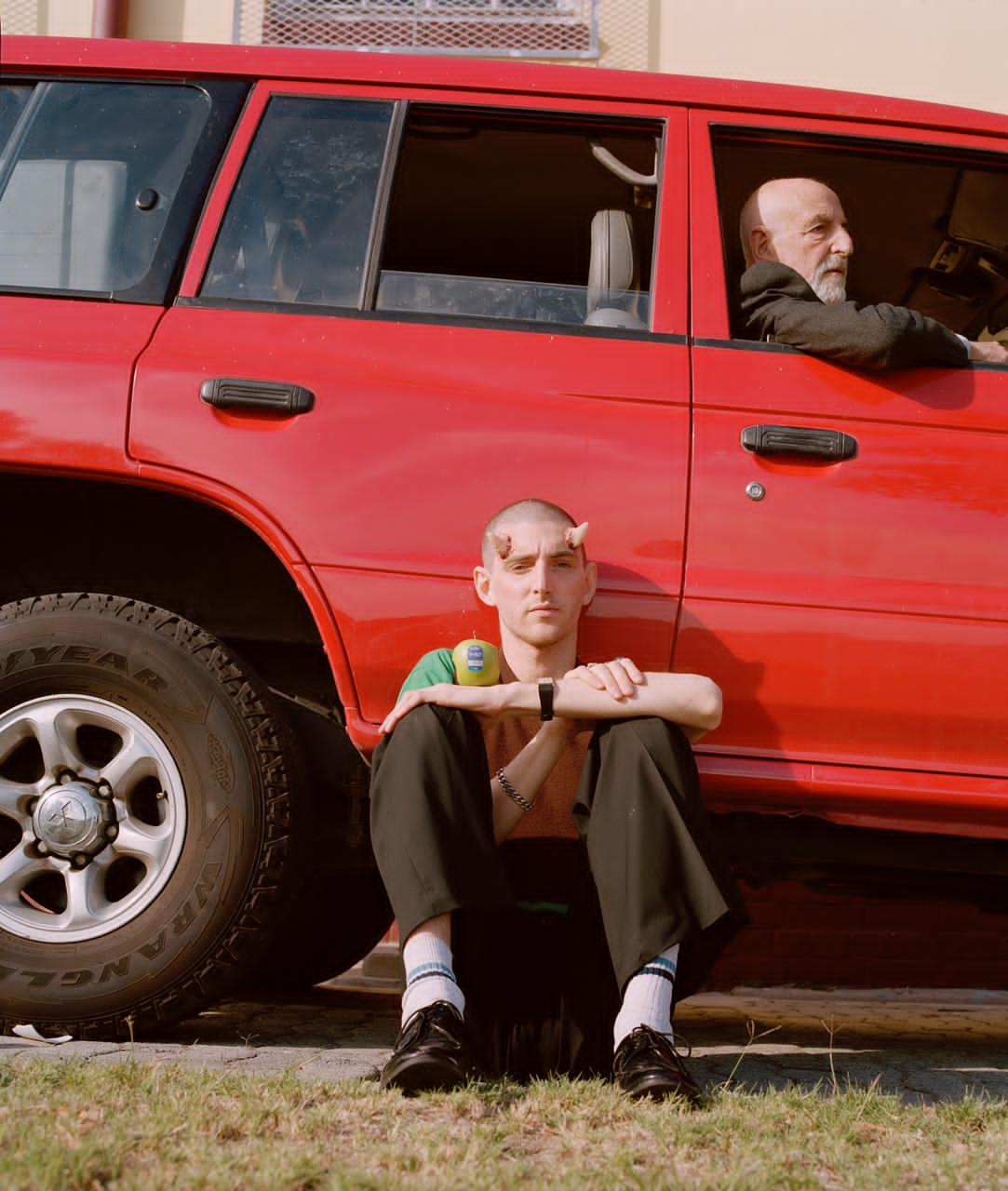

Written by: Holly Beaton

